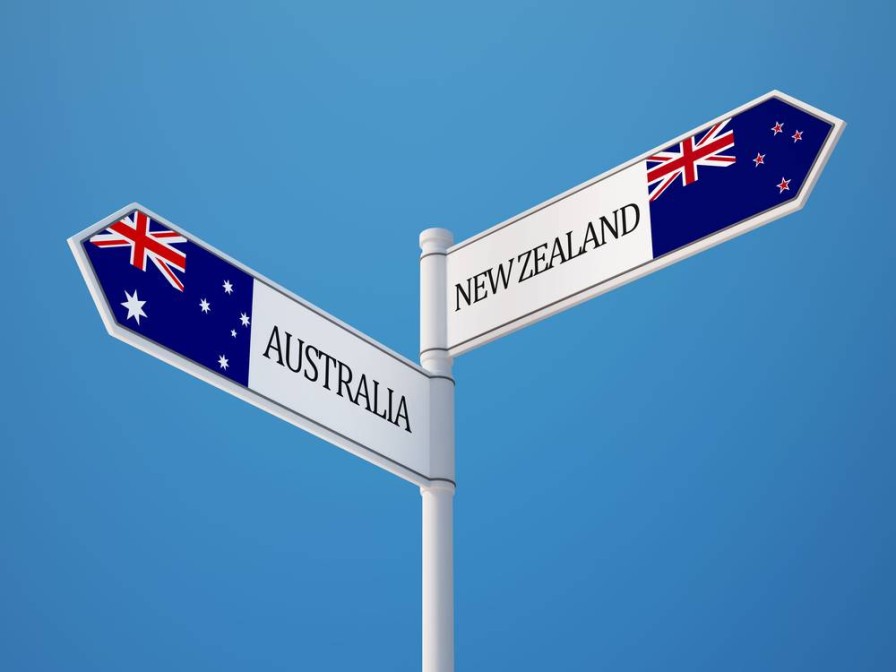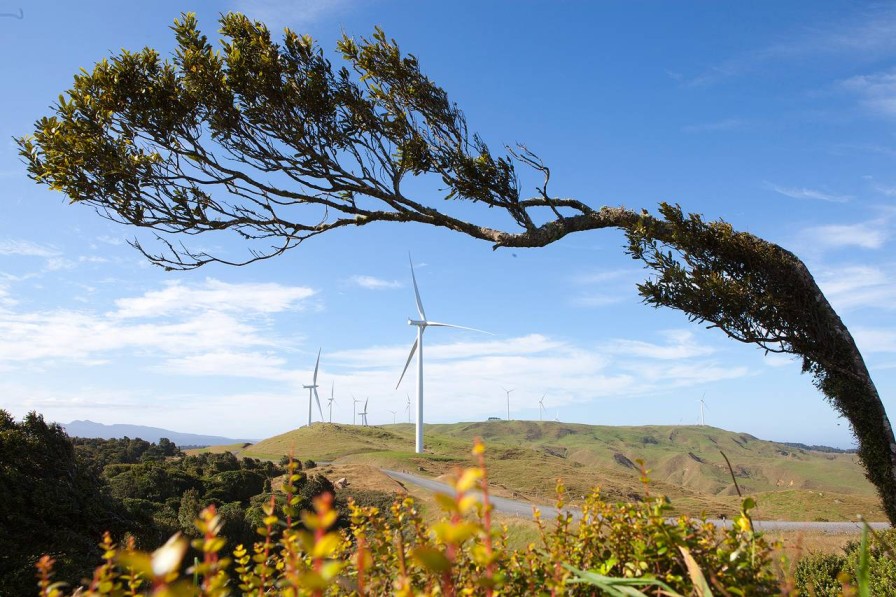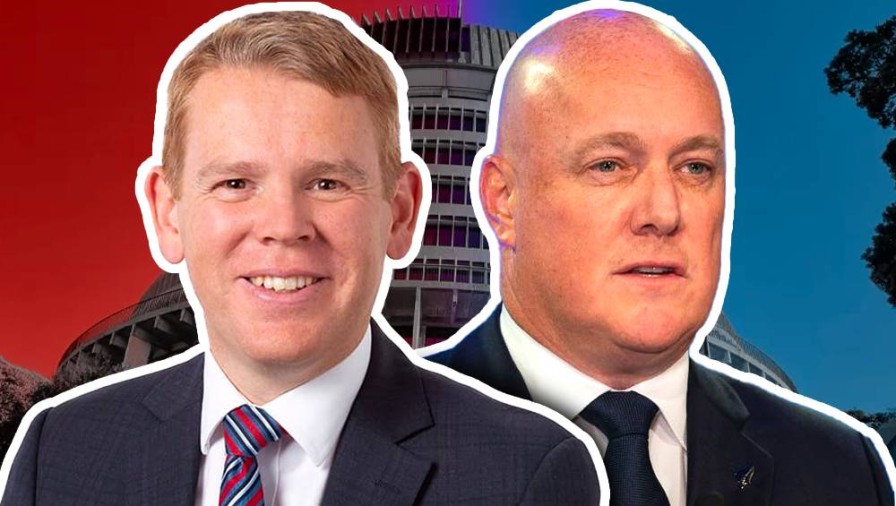Australian citizenship, climate change, taxing the rich
ANALYSIS: Taxing the rich trumps proposals to cut greenhouse gas emissions.
NBR political editor Brent Edwards speaks with Grant Walker.
ANALYSIS: Taxing the rich trumps proposals to cut greenhouse gas emissions.
NBR political editor Brent Edwards speaks with Grant Walker.
There has been plenty of hyperbole after Australia announced at the weekend it would provide a pathway to citizenship for New Zealanders living in Australia.
When it comes into effect in July, it will end 22 years of New Zealanders being treated worse in Australia than Australians are here. Yet far from being a triumph for Prime Minister Chris Hipkins as he returned from Australia after a quick weekend visit, it has largely been portrayed as a defeat, with the Aussies once again getting one over their Kiwi mates.
NBR presenter Grant Walker says Queensland police are paying $150,000 for police officers, so why would anyone not cross the ditch to take the better money. But that’s the point. It is the money, which is attracting New Zealanders across the Tasman, rather than access to all the rights of Australian citizens. And, for those going to Australia now, they will have to wait four years before getting the right to become an Australian citizen.
This has been a perennial debate here, that somehow New Zealand experiences a brain drain to Australia. In reality, people from all walks of life go to Australia, attracted by the higher wages and salaries.
Meanwhile, overall migration flows from other parts of the world more than make up for those who fly across the ditch. In the 12 months to the end of February New Zealand had a net gain of 52,000 migrants, so there are few signs that somehow this country is going to suddenly empty out as people queue for Australian citizenship.

Some people fear more New Zealanders will leave for Australia following changes to citizenship rules.
Meanwhile, two big reports were released this week: one on what needs to be done to meet New Zealand’s emissions reduction targets and the other on how much, or how little, tax the country’s wealthiest people pay. Guess which one got most coverage?
Not the Climate Change Commission report on its draft advice to the Government on the next emissions reduction plan. Despite recommending a series of initiatives – and warning more action needed to be taken faster – there was less interest in the wide-ranging implications it has for the economy and the way people live, than a report on roughly 311 rich people.
Tax, particularly when it applies to the rich, always garners more attention even if recommendations made by the Climate Change Commission would have substantial effects on investment and costs for many businesses, which would then flow into what consumers would pay.
The commission’s message was blunt and to the point: while progress has been made, the Government is still not doing enough to bring emissions down fast enough for New Zealand to meet its net zero target by 2050.
Everything needs to speed up. The country needs more bus lanes, more cycle ways and walking tracks, better public transport, more renewable electricity generation, more switching of industrial heat to renewable energy, farming emissions to be priced as soon as possible, and fewer trees to be planted.

More needs to be done faster to bring down New Zealand’s greenhouse gas emissions.
It warned the country could not rely so much on tree planting to offset emissions. It argues even if that helps achieve the net zero carbon target by 2050 – and it doubts that it will – after 2050, as forests are felled, the country will fall short of its target. The commission is pushing the Government to focus more on cutting gross emissions than cutting net emissions.
That will drive stronger action to transition the economy to a low-carbon one and help give businesses much greater certainty about investing in low-carbon technologies.
It acknowledges the change will be tough for some sectors and that low-income New Zealanders will be hurt more than those on higher incomes. So, it says, more effort needs to be put into supporting a just transition to ensure the effects of the switch do not fall disproportionately on those who can afford it least.
The paper is now out for public consultation, which ends in June. Then the commission will work to finalise its advice for the Government by the end of the year. By then, of course, an election will have been held and it is possible a new government will be in place.
Will any government listen to the independent Climate Change Commission? The Act Party, which would likely be a key partner in any National-led Government, has made it clear it has little interest in the commission’s advice.
Act’s climate change spokesperson Simon Court says the latest recommendations will cost the country immensely without reducing emissions one bit.
“The rest of Parliament signed up to reduction targets without a plan to get there. The result? A new bureaucracy proposing policies that are more about social engineering than emissions reduction,” Court says.

Act Party climate change spokesperson Simon Court.
If Act plays a prominent role in the next government, it is difficult to see many, if any, of the commission’s recommendations being picked up. Nor is there any certainty a third-term Labour Government would do as much as the commission recommends.
It is even clearer that, if there is a change of government in October, the Inland Revenue Department’s work on the income of the wealthiest New Zealanders will be for nought.
Whatever comes out of it, though, will spice up the election campaign, with Labour surely likely to campaign on a policy of some sort of capital gains tax or wealth tax. The Green Party has consistently argued for that, and the Opportunities Party announced its policy last year of introducing a tax-free threshold of $15,000, while introducing a land tax of 0.75% on the value of urban residential land. Both Act and National have dismissed suggestions of CGT or a wealth tax and, instead, propose tax cuts, with Act much more ambitious about just how much taxes could be cut.
It is worth remembering the IRD report simply looked at economic income accruing to the wealthiest people. Some have inferred from the paper that the Government is proposing to tax unrealised capital gains. Go back to the Tax Working Group report of 2019 and its recommendation – which was ignored by the then Labour-led Government – which was to introduce a capital gains tax but only realised gains. So, it would only apply when an asset was sold and its increase in value was realised.
We will have to wait for Labour to release its tax policy for the election campaign to find out just what it might do if it wins another term in power.
One thing is certain. Nothing will happen before then, with Prime Minister Chris Hipkins saying in his pre-Budget speech to the Employers and Manufacturers’ Association on Thursday that no capital gains tax or wealth tax will be in the Budget. Nor will the Government introduce a cyclone levy to pay for the rebuild after the Auckland floods and Cyclone Gabrielle. Instead, it will pay for the rebuild from a combination of existing allocations, cuts to other spending, and some borrowing.

Both Prime Minister Chris Hipkins and National leader Christopher Luxon are attending the coronation of King Charles III.
While Parliament resumes next week after a three-week recess, Hipkins will not be there to answer questions on tax or any other matter. He leaves New Zealand on Monday to head to London for the coronation of King Charles lll. Before the coronation on May 6, the Prime Minister will engage in activities aimed at promoting the free trade agreement with the United Kingdom. In a rare show of consensus, he will be joined by National Party leader Christopher Luxon, who leaves the country next Thursday to join the New Zealand delegation attending the coronation.